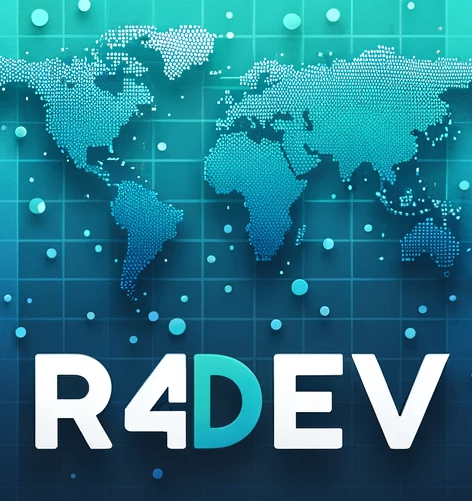💡 What is R4DEV?
I created the R for Development (R4DEV) workshop while working at the OECD to train my constantly rotating team. Word got around and eventually over 80 people joined R4DEV from across the organisation.
Here’s what the workshop is all about:
🦾 What you can expect to learn
Wrangling: Clean, transform and prepare data for analysis with dplyr, tidyr, stringr, lubridate, forcats, tibble
Visualization: Build static and interactive plots with ggplot2, plotly, ggiraph, tidygraph and learn to do animations using gganimate. Explore many ggplot2 extensions.
Text analysis: Transform characters, words, sentences, pages and books into data with tidytext, regex and ggwordcloud
Reporting: Write reports with prose and data at the same time Quarto and learn how to manage references with Zotero
️ Mapping: visualize geospatial data with sf, and go interactive with leaflet and spectacular with rayshader
Data recovery: Import data from online sources and webpages with rvest, pdftools, readr
Publishing: Create apps and dashboard with shiny. Build entire websites with quarto
💫 Apply it to your own project!
If you want, you can start your own project (a thesis, a blog, a paper, etc.) during the workshop.
The idea of this project is not to burden you with extra work, but to avoid that 6 months from now you’ll say “wait, that looks familiar but, of course, I didn’t use it for a while and now I can’t remember anything!”. All of these are practical and important tools for your work, and applying them to something you are already passionate about will let you keep all these lessons beyond your time working with us.
